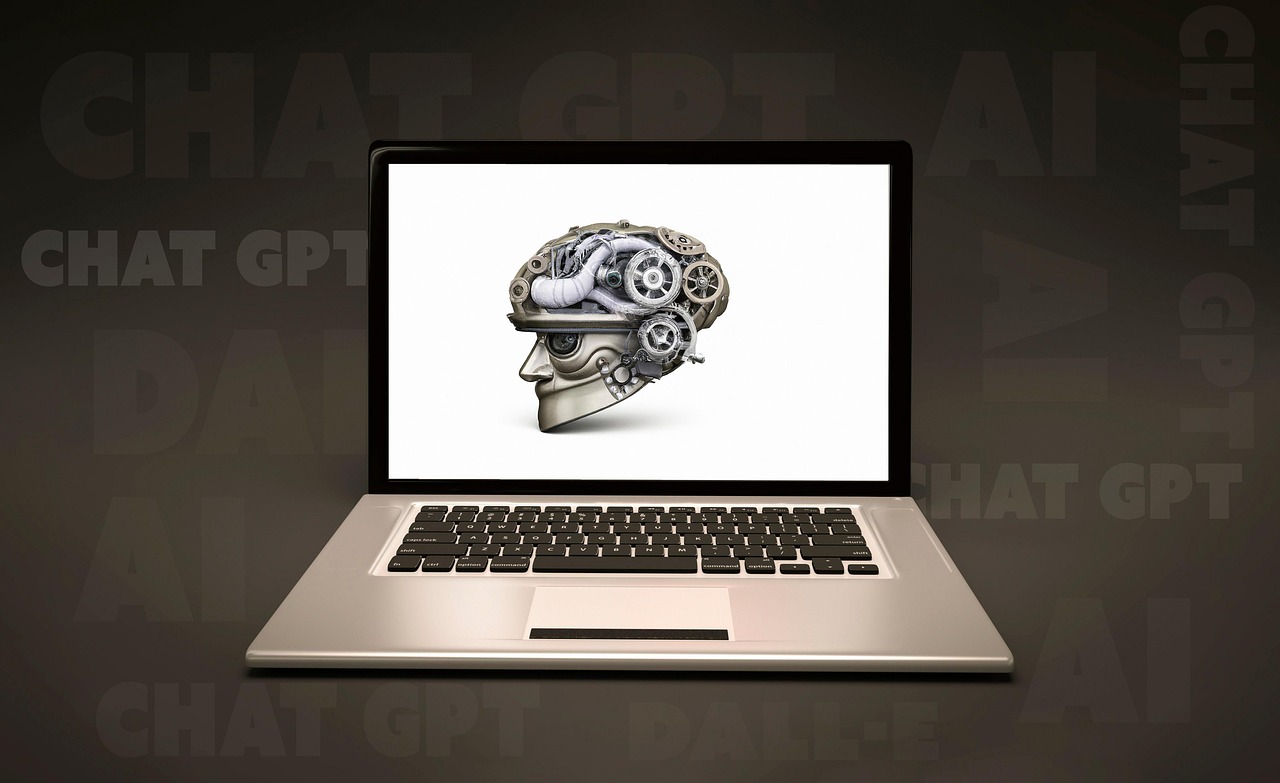Artificial intelligence (AI) is no longer a futuristic concept; it’s an integral part of our present, transforming industries and reshaping how we live and work. From automating mundane tasks to driving groundbreaking discoveries, AI’s potential is vast and continually expanding. This blog post delves into a range of AI use cases across different sectors, showcasing its transformative power and providing insights into its practical applications.
AI in Healthcare
AI is revolutionizing healthcare, offering solutions that improve diagnosis, treatment, and patient care. The possibilities are seemingly endless, leading to greater efficiency and improved outcomes.
Diagnostic Assistance
AI algorithms can analyze medical images like X-rays, MRIs, and CT scans with incredible accuracy, often surpassing human capabilities in detecting subtle anomalies.
- Example: AI-powered software can identify early-stage cancers in mammograms with higher precision, reducing false positives and improving early detection rates. Imagine the peace of mind this offers patients.
- Benefits: Faster diagnosis, reduced diagnostic errors, improved patient outcomes, and decreased workload for radiologists.
- Statistics: A study published in The Lancet showed that AI algorithms could detect breast cancer in mammograms with an accuracy comparable to expert radiologists.
Personalized Medicine
AI can analyze a patient’s genetic makeup, lifestyle, and medical history to create personalized treatment plans. This targeted approach ensures that patients receive the most effective therapies tailored to their specific needs.
- Example: AI can predict a patient’s response to different medications, allowing doctors to choose the most effective drug and dosage while minimizing potential side effects.
- Benefits: More effective treatments, reduced side effects, improved patient compliance, and better overall health outcomes.
- Actionable Takeaway: Discuss with your doctor if AI-powered personalized medicine options are available for your specific condition.
Drug Discovery
The drug discovery process is notoriously long and expensive. AI is accelerating this process by analyzing vast amounts of data to identify potential drug candidates and predict their efficacy.
- Example: AI algorithms can screen millions of compounds to identify those that are most likely to bind to a specific target protein, significantly reducing the time and cost associated with traditional drug screening methods.
- Benefits: Faster drug development, reduced costs, increased success rates, and access to new and innovative therapies.
- Statistics: AI is estimated to reduce the time to market for new drugs by up to 40%, saving billions of dollars in research and development costs.
AI in Finance
The financial industry is leveraging AI to enhance efficiency, detect fraud, and provide better customer service.
Fraud Detection
AI algorithms can analyze transaction data in real-time to identify suspicious patterns and flag potentially fraudulent activities.
- Example: AI can detect unusual spending patterns on credit cards, such as large transactions in unfamiliar locations, and alert the cardholder to verify the transaction.
- Benefits: Reduced fraud losses, improved security, enhanced customer trust, and faster fraud investigations.
- Actionable Takeaway: Enable fraud alerts on your credit cards and bank accounts to receive immediate notifications of suspicious activity.
Algorithmic Trading
AI-powered algorithms can analyze market data and execute trades automatically, taking advantage of fleeting opportunities and optimizing investment strategies.
- Example: High-frequency trading (HFT) firms use AI algorithms to execute trades in milliseconds, capitalizing on small price discrepancies and generating profits.
- Benefits: Increased trading efficiency, improved investment returns, reduced emotional bias, and access to sophisticated trading strategies.
- Statistics: Algorithmic trading accounts for a significant portion of trading volume in major financial markets, highlighting its growing importance.
Customer Service Chatbots
AI-powered chatbots can provide instant customer support, answering questions, resolving issues, and guiding customers through financial processes.
- Example: Many banks use chatbots on their websites and mobile apps to answer frequently asked questions about account balances, transaction history, and loan applications.
- Benefits: Improved customer satisfaction, reduced wait times, lower customer service costs, and 24/7 availability.
- Actionable Takeaway: Utilize chatbots for quick answers to common financial questions, freeing up human agents to handle more complex inquiries.
AI in Manufacturing
AI is transforming manufacturing processes, leading to increased efficiency, improved quality control, and reduced costs.
Predictive Maintenance
AI algorithms can analyze data from sensors on machines to predict when maintenance is needed, preventing costly breakdowns and downtime.
- Example: AI can monitor the vibration levels of a machine and predict when a bearing is likely to fail, allowing maintenance crews to replace the bearing before it causes a major breakdown.
- Benefits: Reduced downtime, lower maintenance costs, increased equipment lifespan, and improved production efficiency.
- Actionable Takeaway: Implement predictive maintenance programs to optimize equipment performance and minimize unexpected disruptions.
Quality Control
AI-powered vision systems can inspect products for defects with greater accuracy and speed than human inspectors, ensuring that only high-quality products reach customers.
- Example: AI can inspect electronic components for microscopic defects that are difficult for human eyes to detect, ensuring the reliability of electronic devices.
- Benefits: Improved product quality, reduced waste, lower production costs, and enhanced customer satisfaction.
- Statistics: AI-powered quality control systems can reduce defect rates by up to 90%, significantly improving product quality and reducing waste.
Robotics and Automation
AI is enabling robots to perform complex tasks in manufacturing environments, increasing efficiency and reducing the need for human labor in dangerous or repetitive jobs.
- Example: AI-powered robots can assemble complex products, such as automobiles, with greater precision and speed than human workers.
- Benefits: Increased production efficiency, reduced labor costs, improved safety, and enhanced flexibility.
- Actionable Takeaway: Explore opportunities to automate repetitive or dangerous tasks with AI-powered robots to improve efficiency and safety.
AI in Marketing and Sales
AI is empowering marketers and sales professionals to personalize customer experiences, optimize campaigns, and drive revenue growth.
Personalized Marketing
AI algorithms can analyze customer data to create personalized marketing messages and offers, increasing engagement and conversion rates.
- Example: E-commerce websites use AI to recommend products that are likely to be of interest to individual customers based on their browsing history and purchase behavior.
- Benefits: Increased customer engagement, higher conversion rates, improved customer loyalty, and enhanced return on investment.
- Actionable Takeaway: Implement personalized marketing strategies to tailor your messaging and offers to individual customer preferences.
Lead Scoring and Prioritization
AI can analyze lead data to identify the most promising leads and prioritize them for sales follow-up, maximizing sales efficiency.
- Example: AI can analyze lead data, such as website activity, email engagement, and social media interactions, to predict which leads are most likely to convert into customers.
- Benefits: Increased sales efficiency, improved lead conversion rates, reduced sales cycle time, and higher revenue generation.
- Statistics: Companies that use AI for lead scoring experience a 69% improvement in lead generation efforts.
Chatbots for Sales
AI-powered chatbots can engage with website visitors, answer questions, and guide them through the sales process, increasing conversion rates.
- Example: Chatbots can answer common sales questions, provide product information, and schedule demos, freeing up sales representatives to focus on closing deals.
- Benefits: Increased lead generation, improved customer engagement, reduced sales cycle time, and higher conversion rates.
- Actionable Takeaway: Implement chatbots on your website to engage with visitors and guide them through the sales process, increasing lead generation and conversion rates.
Conclusion
AI’s use cases are vast and diverse, spanning across industries and transforming the way we live and work. From improving healthcare outcomes to optimizing manufacturing processes and personalizing customer experiences, AI is proving to be a powerful tool for innovation and progress. As AI technology continues to evolve, we can expect to see even more groundbreaking applications emerge, further shaping our future and unlocking new possibilities. By understanding and embracing AI, businesses and individuals can harness its potential to drive growth, efficiency, and positive change. The key is to identify the specific challenges that AI can address and implement solutions that align with your goals. The future is intelligent; are you ready?
Read our previous article: Beyond Bitcoin: Navigating Altcoin Innovation And Risk




